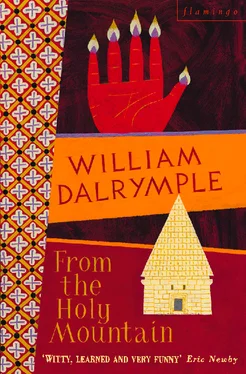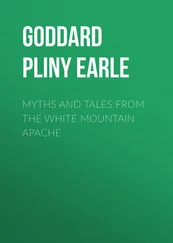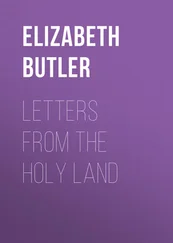‘What is that?’ I whispered.
‘It’s John Tzimiskes’s coat.’
‘The Emperor John Tzimiskes? But he lived in the tenth century.’
Christophoros shrugged his shoulders.
‘You can’t just leave something like that hanging up there,’ I said.
‘Well,’ said Christophoros irritably, ‘where else would you put it?’
In the gloom, we found our way past rank after rank of shelves groaning with leather-bound Byzantine manuscripts, before drawing to a halt in front of a cabinet in the far corner of the room. Christophoros unlocked and opened the glass covering. Codex G.9 was on the bottom shelf, wrapped up in a white canvas satchel.
It was a huge volume, as heavy as a crate of wine, and I staggered over to a reading desk with it, while Christophoros followed with the lamp.
‘Forgive me,’ he said, as I lowered the volume gently onto the desk, ‘but are you Orthodox or heretic?’
I considered for a second before answering. A Catholic friend who had visited Athos a few years previously had warned me above all never to admit to being a Catholic; he had made this mistake, and said that had he admitted to suffering from leprosy or tertiary syphilis he could not have been more resolutely shunned than he had been after that. He told me that in my case it was particularly important not to raise the monks’ suspicions, as they have learned to distrust, above all their visitors, those who ask to see their manuscripts. They have long memories on Athos, and if the monks have never forgiven the Papacy for authorising the ransacking of Constantinople during the Fourth Crusade over eight hundred years ago, they have certainly not forgotten the nineteenth-century bibliophiles who decimated the libraries of Athos only a century ago.
The English traveller the Hon. Robert Curzon is still considered one of the worst offenders: after a quick circuit around the monastic libraries of Athos in the late 1840s (in the company, I am ashamed to say, of my great-great-uncle), Curzon left the Holy Mountain with his trunks bulging with illuminated manuscripts and Byzantine chrysobuls; in his travel book Visits to Monasteries in the Levant he writes of buying the priceless manuscripts from the Abbot by weight, as if they were figs or pomegranates in an Ottoman market. Worse still is the memory of the German bibliophile Herman Tischendorff. Some twenty years after Curzon’s trip to Athos, Tischendorff left the Greek Orthodox Monastery of St Catherine’s in Sinai with the Codex Sinaiaticus – still the earliest existing copy of the New Testament – tucked into his camel bags. Tischendorff later claimed that he found the various leaves of the manuscript in a basket of firewood, and that he had saved it from the monks, who were intent on burning it to keep them warm in winter. The monks, however, maintain to this day that Tischendorff got the librarian drunk and discreetly swapped the priceless manuscript – which, like Curzon’s plunder, duly found its way into the British Library – for a bottle of good German schnapps.
Noticing my silence, Christophoros asked again: What was I, Orthodox or heretic?
‘I’m a Catholic,’ I replied.
‘My God,’ said the monk. ‘I’m so sorry.’ He shook his head in solicitude. ‘To be honest with you,’ he said, ‘the Abbot never gives permission for non-Orthodox to look at our holy books. Particularly Catholics. The Abbot thinks the present Pope is the Antichrist and that his mother is the Whore of Babylon. He says that they are now bringing about the Last Days spoken of by St John in the Book of Revelation.’
Christophoros murmured a prayer. ‘Please,’ he said, ‘don’t ever tell anyone in the monastery that you’re a heretic. If the Abbot ever found out, I’d be made to perform a thousand prostrations.’
‘I won’t tell a soul.’
Christophoros relaxed slightly, and took off his glasses to polish them on the front of his habit. ‘You know, we actually had another Catholic in the monastery earlier this year?’ he said.
‘Who was that?’ I asked.
‘He was a choirmaster from Bavaria,’ said Christophorus. ‘He had a beautiful voice.’
I eased the book up onto a reading stand, and began to unbutton its canvas cover.
‘He said our church had wonderful acoustics,’ continued Christophoros, arranging the lamps on the desk. ‘So he asked Fr. Yacovos if he could sing a Gloria inside the katholikon , under the dome.’
‘What did Fr. Yacovos say?’
‘He said that he didn’t think he could let a heretic pray inside the church. But just this once he said he would let him sing a little alleluia in the porch.’
I had now got the protective canvas off, and the beautifully worked leather binding gleamed golden in the light of the lantern.
I opened the cover. Inside, the text was written in purple ink on the finest vellum – strong, supple and waxy, but so thin as to be virtually translucent. The calligraphy was a beautifully clear and cursive form of early medieval Georgian. According to the library’s detailed catalogue, the volume had bound together a number of different early Byzantine devotional texts. The first folio I opened was apparently a shrill sermon by St Jerome, denouncing what he considered the thoroughly pagan practice of taking baths: ‘He who has bathed in Christ,’ fumed the saint, ‘does not need a second bath.’
Only towards the end, on folio 287 verso, did I come to the opening lines of the text I had come so far to see. Its author was the great Byzantine traveller-monk John Moschos, and the book had been compiled at the end of his life as he prepared for death in a monastery in Constantinople, 1,300 years ago.
‘In my opinion, the meadows in Spring present a particularly delightful prospect ,’ he wrote. ‘One part of this meadow blushes with roses; in other places lilies predominate; in another violets blaze out, resembling the Imperial purple. Think of this present work in the same way, Sophronius, my sacred and faithful child. For from among the holy men, monks and hermits of the Empire, I have plucked the finest flowers of the unmown meadow and worked them into a crown which I now offer to you, most faithful child; and through you to the world at large …’
Turning up the lamp, I opened a fresh page.
In the spring of the year 578 A. D., had you been sitting on a bluff of rock overlooking Bethlehem, you might have been able to see two figures setting off, staves in hand, from the gates of the great desert monastery of St Theodosius. The two – an old grey-bearded monk accompanied by an upright, perhaps slightly stern, and certainly much younger companion – would have headed off south-west through the wastes of Judaea, towards the fabulously rich port-metropolis of Alexandria.
It was the start of an extraordinary journey that would take John Moschos and his pupil, Sophronius the Sophist, in an arc across the entire Eastern Byzantine world. Their aim was to collect the wisdom of the desert fathers, the sages and mystics of the Byzantine East, before their fragile world – already clearly in advanced decay – finally shattered and disappeared. The result was the volume in front of me now. If today in the West it is a fairly obscure text, a thousand years ago it was renowned as one of the most popular books in all the great literature of Byzantium.
Byzantine caravanserais were rough places, and the provincial Greek aristocracy did not enjoy entertaining: as the Byzantine writer Cecaumenus put it, ‘Houseparties are a mistake, for guests merely criticise your housekeeping and attempt to seduce your wife.’ So everywhere they went, the two travellers stayed in monasteries, caves and remote hermitages, dining frugally with the monks and ascetics. In each place, Moschos seems to have jotted down accounts that he had heard of the sayings of the fathers, and other anecdotes and miracle stories.
Читать дальше












